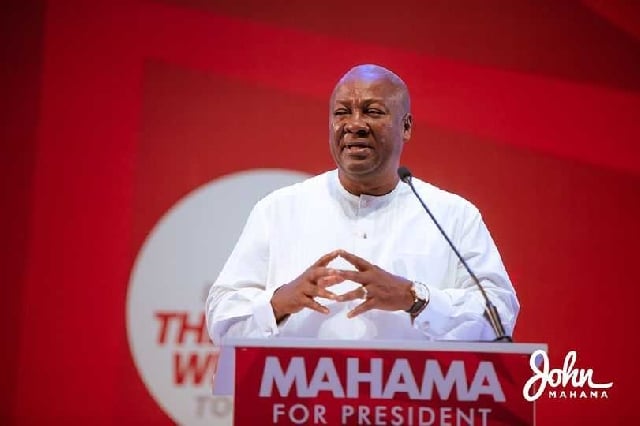In his recent address to party supporters in the Salaga North constituency of the Savannah region, former President John D. Mahama, the National Democratic Congress (NDC) flagbearer for the upcoming elections, articulated his vision for a 24-hour economy in Ghana. Mahama emphasized that achieving this ambitious goal would necessitate significant amendments to existing legislation. His focus is on transforming regulatory frameworks to both protect the rights of workers and foster a business-friendly environment. This dual approach aims to create a conducive atmosphere for economic activity while ensuring that employees are treated fairly, thereby striking a balance between business interests and labor rights.
One of the key legislative changes that Mahama proposes is an overhaul of labor laws to facilitate longer working hours and additional shifts. By modifying these laws, he believes that the work landscape can be adapted to support a 24-hour economy. This shift is critical as it would allow businesses to operate beyond traditional hours, thus maximizing productivity and output. Mahama’s vision reflects a broader recognition of the changing dynamics of work and the need for adaptability in an increasingly competitive global economy. His argument positions the proposed amendments as essential not only for enhancing economic activity but also for aligning Ghana with global trends that embrace flexibility in the workplace.
Furthermore, Mahama highlighted the need for amendments to customs and tax laws, which are vital to incentivizing businesses to embrace the extended hours of operation. By providing tax breaks and reducing customs barriers for companies ready to contribute to a 24-hour economy, the NDC aims to encourage greater participation from the private sector. This focus on incentives underlines the party’s strategy to stimulate economic growth while ensuring that the regulatory environment supports innovation and entrepreneurship. As Mahama pointed out, creating a favorable business climate is essential for attracting investment and enabling local businesses to thrive.
Reflecting on the urgency of these reforms, Mahama asserted that Ghana is “a nation in a hurry,” urging his supporters to embrace a sense of dynamism and eagerness to propel the economy forward. His call to action—”If people are walking, we must be jogging; if people are jogging, we must be running; if people are running, we must be flying”—encapsulates the idea that Ghana must not only keep pace with global developments but also strive to lead in various economic sectors. This metaphor of accelerated movement serves as a rallying cry for the NDC and its supporters, reinforcing the importance of proactive governance and strategic planning in navigating future challenges.
As part of his campaign strategy, Mahama is positioning these proposed changes as a way to “reset Ghana” and revitalize the economy ahead of the December 7, 2024 elections. The emphasis on a 24-hour economy resonates with the needs of modern society, addressing the challenges posed by the pandemic and the rapid shifts in how businesses operate. By prioritizing legislative reform and creating a pro-business atmosphere, Mahama aims to instill confidence in voters and rally support for his vision of a progressive, resilient, and economically vibrant Ghana.
In conclusion, Mahama’s commitment to amending labor, customs, and tax laws reflects a thoughtful approach to addressing the complex realities of Ghana’s economy. By articulating a clear vision for a 24-hour economic policy that balances worker rights with the needs of businesses, he is setting the stage for a comprehensive discussion on economic reform during the election campaign. His urgent appeal for change underscores the necessity for forward-thinking policies that can support sustainable growth and ensure that Ghana remains competitive on the global stage. As the nation heads toward the polls, the effectiveness of these proposals in garnering public support will be closely monitored, shaping the future trajectory of Ghana’s economic landscape.














